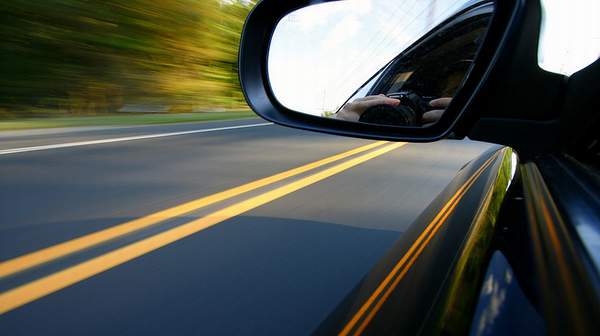What's in this article?
What is motion sickness?
Motion sickness is the feeling you get when the motion you sense with your inner ear is different from the motion you visualize. It is a common condition that occurs in some people who travel by car, train, airplane or boat. Many people suffer from this condition if they ride on a roller coaster or other similar amusement park rides. Motion sickness progresses from a feeling of uneasiness to sweating and dizziness. This is usually quickly followed by nausea and vomiting.
What causes motion sickness?
You get motion sickness when one part of your balance-sensing system (your inner ear, eyes, and sensory nerves) senses that your body is moving, but the other parts don’t. For example, if you are in the cabin of a moving ship, your inner ear may sense the motion of waves, but your eyes don’t see any movement. This conflict between the senses causes motion sickness.
You may feel sick from the motion of cars, airplanes, trains, amusement park rides, or boats or ships. You could also get sick from video games, flight simulators, or looking through a microscope. In these cases, your eyes see motion, but your body doesn’t sense it.
You may escape motion sickness by planning ahead. If you’re traveling, reserve seats where motion is felt least:
- By ship, request a cabin in the front or middle of the ship near the water level.
- By plane, ask for a seat over the front edge of a wing. Once aboard, direct the air vent flow to your face.
- By train, take a seat near the front and next to a window. Face forward.
- By automobile, drive or sit in the front passenger’s seat.
If you’re susceptible to motion sickness:
- Focus on the horizon or on a distant, stationary object. Don’t read.
- Keep your head still, while resting against a seat back.
- Don’t smoke or sit near smokers.
- Avoid spicy and greasy foods and alcohol. Don’t overeat.
- Take an over-the-counter antihistamine, such as meclizine (Antivert), or one containing dimenhydrinate (Dramamine), at least 30 to 60 minutes before you travel. Expect drowsiness as a side effect.
- Consider scopolamine (Transderm Scop), available in a prescription adhesive patch. Several hours before you plan to travel, apply the patch behind your ear for 72-hour protection. Talk to your doctor before using the medication if you have health problems, such as asthma, glaucoma or urine retention.
- Eat dry crackers or drink a carbonated beverage to help settle your stomach if you become ill.
Signs and Symptoms
The most common signs and symptoms of motion sickness include:
- Nausea
- Pale skin
- Cold sweats
- Vomiting
- Dizziness
- Headache
- Increased salivation
- Fatigue
Who is at risk for motion sickness?
Although pregnant women and children are more susceptible to motion sickness, almost anyone that is traveling is at risk for motion sickness. For those people who travel on boats, seasickness can be considered a form of motion sickness. Other risk factors include the person’s fear or anxiety about traveling, the mode of travel, poor ventilation in the traveling vehicle, and the inability to see out of a window to aid orientation.
How is it treated?
You can take medicine to prevent or reduce nausea and vomiting. These include:
- Scopolamine, which comes as a patch you put behind your ear.
- Medicines called antiemetics, which reduce nausea.
- Certain antihistamines, which may make you drowsy.
Some of these medicines require a prescription. Most work best if you take them before you travel.
These tips may help you feel better when you have motion sickness:
- Eat a few dry soda crackers.
- Sip on clear, fizzy drinks such as ginger ale.
- Get some fresh air.
- Lie down, or at least keep your head still.
How can you avoid motion sickness?
It’s best to try to prevent motion sickness, because symptoms are hard to stop after they start. After symptoms start, you may feel better only after the motion stops.
These general tips may help you avoid motion sickness:
- Move your head as little as possible.
- Don’t drink alcohol or eat a heavy meal before you travel.
- Don’t eat or drink during short trips.
- Try to avoid strong odors and spicy foods.







